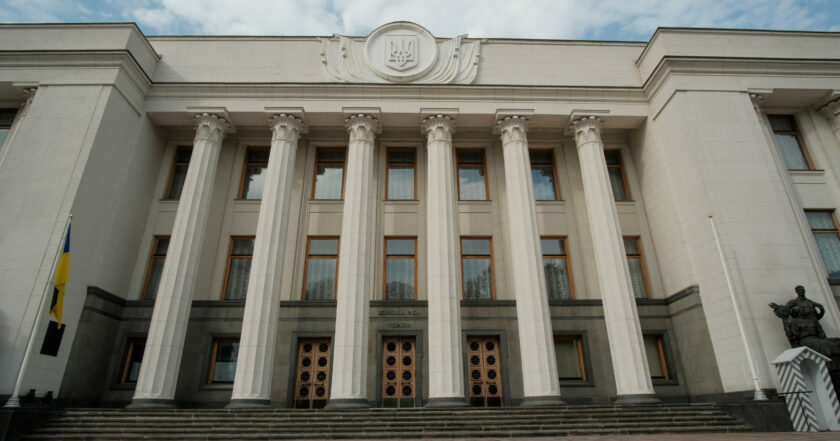Ukrainian parliament adopts national minorities bill, paving the way for European integration

Photo: Rubryka
Members of the Ukrainian parliament have passed an alternative bill on national minorities, crucial for Ukraine's further integration into Europe.
The news of bill adoption was shared by MPs Oleksii Honcharenko, Yaroslav Zhelezniak, and Iryna Heraschenko, Rubryka reports.
What's the problem?
On September 21, 2023, the Ukrainian parliament adopted the Law of Ukraine "On Amendments to the Law of Ukraine 'On National Minorities (Communities) of Ukraine' Regarding Certain Issues of the Implementation of Rights and Freedoms of Persons Belonging to National Minorities (Communities) of Ukraine" No. 3389-IX. This law brought significant positive changes to the legal regulation of ensuring the rights and freedoms of national minorities.
However, these changes were limited solely to the Law of Ukraine, "On National Minorities (Communities) of Ukraine," which could not fully guarantee the necessary protections for national minorities in all areas of law.
Considering this, the Cabinet of Ministers of Ukraine was instructed to prepare and submit a bill to the Verkhovna Rada to incorporate the expert assessment of the Council of Europe and its bodies on the rights of national minorities in specific areas.
On October 9, 2023, the European Commission for Democracy through Law (Venice Commission) published an opinion on the mentioned law, noting the positive changes in Ukraine's protection of the rights and freedoms of national minorities.
However, the opinion emphasized the need to amend several Ukrainian laws in specific areas of legal regulation, mostly in the fields of education and language.
What's the solution?
The Ukrainian parliament, Verkhovna Rada, has passed a bill on national minorities crucial for further European integration.
Bill No. 10288-1, considering the Council of Europe's assessment of the rights of national minorities in specific areas, received the support of 317 MPs.
Zhelezniak stated that this document was a "revised version agreed upon by all factions." Iryna Heraschenko said that MPs had already passed all the necessary laws to begin formal negotiations for Ukraine's accession to the EU.
How does it work?
The bill includes the following provisions:
According to the document, private universities have the right to choose the language of teaching, which should be the official language of the EU. This includes teaching one, several, or all subjects, completing individual assignments, and conducting assessments in the language of the national minority. However, students should also learn Ukrainian as a separate academic discipline.
Representatives of national minorities whose languages are official EU languages and who started general secondary education before September 1, 2018, have the right to continue their education in their language until completing full secondary education.
The bill allows the dissemination of pre-election campaign materials in the languages of the respective indigenous peoples and national minorities. These materials should also be duplicated in Ukrainian.
State support for publishing products issued in the Crimean Tatar language or other languages of indigenous peoples or national minorities (among the official languages of the EU) does not require publishing at least 50% of book editions in Ukrainian.
For televised programs for national minorities, Ukrainian-language programs should constitute at least 30% of the total duration of programs (excluding Russian-language programs).
Representatives of national minorities in Ukraine can receive basic and specialized secondary education in their respective languages. An exception applies to subjects: Ukrainian language, Ukrainian literature, history of Ukraine, and defense of Ukraine.
Restrictions on the languages of national minorities recognized as official languages of a state recognized by the Verkhovna Rada of Ukraine as an aggressor state or occupier are transferred from the final and transitional provisions of the laws of Ukraine into the body of documents, without time constraints.
What we know about Ukraine's EU accession
On November 8, the European Commission officially recommended that EU member states begin negotiations on Ukraine's accession to the European Union.
On the same day, the EC presented a report on Ukraine's progress in 2023 with further recommendations. Among them was the need to implement all recommendations of the Venice Commission on national minorities, including making certain changes to legislation on state language, media, and education.
In turn, the Hungarian government threatened to block the start of negotiations on Ukraine's accession to the European Union, claiming violations of the rights of Hungarians in Ukraine.
Moreover, Hungarian Foreign Minister Péter Szijjártó stated that Ukraine's accession to the EU amid an ongoing war will bring war into the "community, which, obviously, no one wants."
Following a meeting of foreign ministers of EU countries, EU High Representative for Foreign Affairs Josep Borrell stated that Ukraine was a top priority and the EU would not tire of its commitments to support.

























































